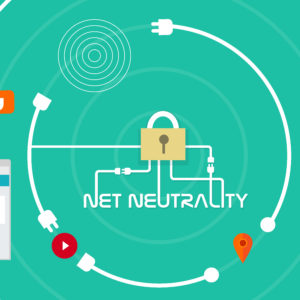Leading up to the 2018 midterms, net neutrality-supporting think tank Fight for the Future (FFTF) highlighted thousands of selfies of voters who said they were “voting for net neutrality” — i.e., Democratic candidates who they hope will either push the Federal Communications Commission (FCC) to reinstate net neutrality rules, or legislate net neutrality themselves.
But now that Democrats have won the House, tech experts both for and against net neutrality rules are unsure how the net neutrality debate will pan out, and they don’t expect any net neutrality bill to gain traction in Congress.
A few days before the midterm elections, net neutrality supporters got a boost from the Supreme Court of the United States’ (SCOTUS) refusal to hear US Telecom’s appeal regarding the Obama administration’s 2015 net neutrality rules. Several think tanks called the denial, issued Friday, a win for net neutrality.
But it’s more a technical and legal win for agency independence because by declining to hear the case, SCOTUS deferred to the Federal Communications Commission’s (FCC) expertise and upheld its authority to issue rules regarding net neutrality, the American Enterprise Institute’s (AEI) visiting fellow Roslyn Layton told InsideSources.
SCOTUS’ refusal to hear the case means the 2015 rules may still be valid, even though the FCC repealed them last year. Whether or not those 2015 rules still stand will be decided in the D.C. Circuit Court of Appeals, in the Mozilla v. FCC case. And then there’s the United States v. California case, in which the Department of Justice (DOJ) is suing the state of California for overriding federal law and passing its own net neutrality rules.
Until those cases are decided, experts say, Democrats probably won’t try to legislate net neutrality.
“I think it’s hard to see a path forward with net neutrality legislation,” Public Knowledge’s Senior Policy Counsel Philip Berenboick told InsideSources.
However, Democrats will probably try to keep the FCC on a tight leash and bring commissioners up to the hill for a lot more oversight hearings, according to House Energy and Commerce Committee ranking member Rep. Frank Pallone Jr. (D-N.J.), in a statement to The Hill.
But other experts think there’s potential for some kind of bipartisan legislation to pass, depending on how the various net neutrality lawsuits evolve.
“We’re going to see in the early part of the year the arguments of the net neutrality case, Mozilla v. FCC,” Layton said. “And that could get people to move. What I expect is going to happen is the courts are going to say, the agencies have deference to change their mind and say whoever is in power gets to change the rules. I actually think that the court rulings could drive some bipartisan legislation.”
Ryan Radia, a research fellow at the Competitive Enterprise Institute (CEI), however, thinks compromise between Democrats and Republicans is unlikely because the pending lawsuits over net neutrality rules are so contentious.
“I don’t think the odds of any meaningful legislative change are going to go up with a Democratic House,” he told InsideSources.
But it’s possible Democrats could pass a net neutrality bill through the House to force a debate on the topic and send a message to the voters focused on the issue–many of them young activists important to the party. Even if the bill eventually dies in the Senate or on Trump’s desk, the Center for Democracy and Technology’s Vice President for Policy Chris Calabrese said it could set the stage for future success.
“I’m sure they’ll want to push legislation, it’s very popular and very popular among their base, but the Democrats are pushing back against a regulatory landscape where there is no regulation, and I think everyone things eventually there will be legislation,” Calabrese told InsideSources. “So I think what we’ll probably see in this Congress is two years getting strong net neutrality legislation shaped and passed in the House and then in 2020 or 2022, a concerted push to get something passed.”

